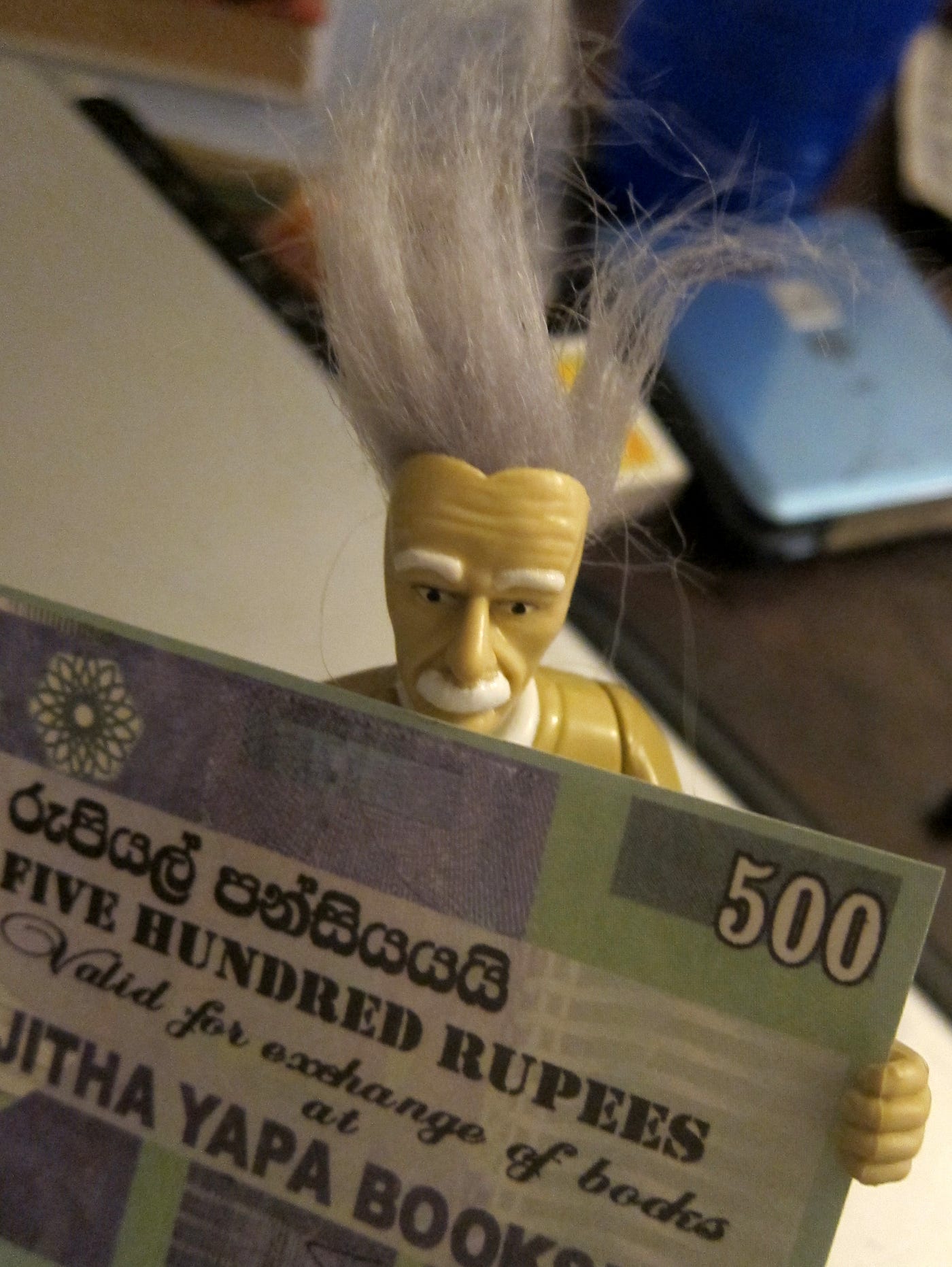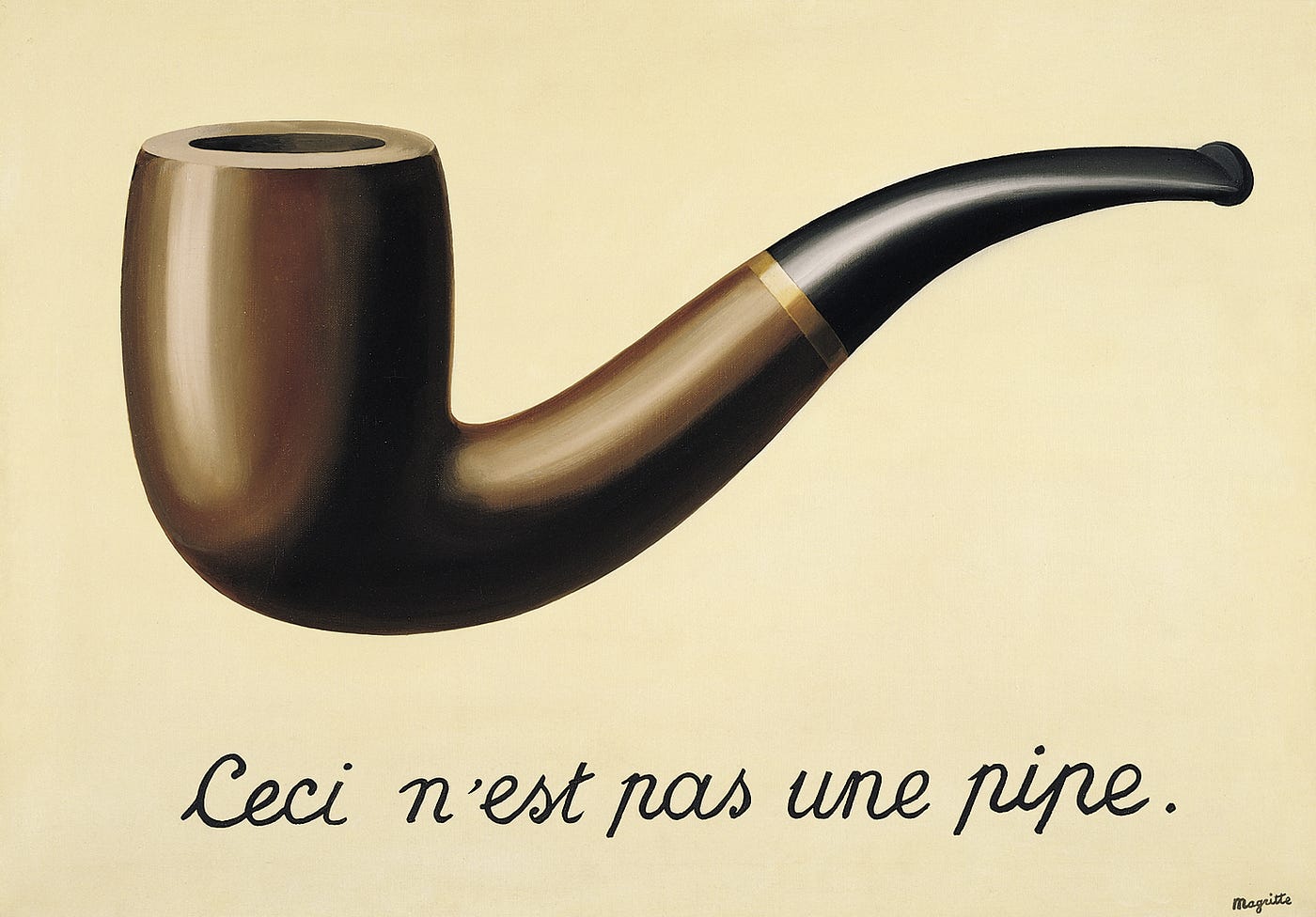The Universe Is Really Telling You Something

Being one with the universe is thought of as being a peaceful state, but the default state of oneness is being dead. Resting in peace, as they say. A snake eating you alive can teach you this as well as a sage, but nobody wants that. What we really want is the knowledge of death while holding on to our lives.
We want to explore the universe, but not be in the actual explosion. We want to see the vastness of the ocean, but we don’t actually want to fall in. We want to have our separate life and also experience the connection that can only really come from dying. This is the paradox of what we call consciousness. We want to know the real within the delusion, we want to tell the truth with lies.
Einstein
Death is both the site of our greatest terror and the place we, literally, rest in peace. As Albert Einstein explained in a 1950 condolence letter:
“A human being is a part of the whole, called by us “Universe”, a part limited in time and space. He experiences himself, his thoughts and feelings as something separated from the rest — a kind of optical delusion of his consciousness. The striving to free oneself from this delusion is the one issue of true religion. Not to nourish the delusion but to try to overcome it is the way to reach the attainable measure of peace of mind.”
This is indeed true, but it’s little condolence. If you tell someone that they never really existed, that energy is neither created nor destroyed, this is all deeply true, and deeply uncomforting. What we really want is that feeling before without dying. What we really want is not so much to overcome delusion but to experience truth within the delusion. This is a bit of a paradox, but gods know we try.
For example, my son was just asking about our long-dead dog. The boy barely knew him, but he lives on in stories. The boy asked if the dog was with our recently dead uncle, in heaven. I thought about this. They are certainly together, but in the disintegration of forms, not a reunion. When you are ‘one’ with the cosmos, there is no chance for ‘one-to-one’ meetings. The price of oneness is that you must give up youness and anyways, which version of you would you be in the afterlife? But how to explain this to a child? More to the point, how to get him to stop crying about it?
So what did I tell my kid? I have no idea what happens after you die, but that’s not what he was asking. He was asking about a feeling, and stories can be emotionally true while factually, well, loose. So I told him yes. I told him a story to get him to sleep. Every religion is a story like this. A story in the night, explaining those who are gone. These stories can’t all be right, but they can’t all be wrong. They’re right about something. They get the feeling right and, at the end of the day, isn’t that what we’re asking about?
Magritte
I suppose Einstein would call this ‘nourishing the delusion’ but this life is all illusion. The Buddha said, “there are other dhammas, deep, difficult to see, difficult to understand, peaceful and sublime, [and] beyond the sphere of reasoning.” As long as we are reasoning (with words or symbols) we are not talking about these deep dhammas. We are merely representing illusions in other illusions, hoping that it will trigger something deeper in someone else’s mind. Take art, for example, and how Rene Magritte could never just paint a pipe.

Magritte is pointing out that we leap beyond reasoning so quickly with a painting. It never occurs to us to observe that this is just paint on a canvas, we quickly jump to the representation of a pipe. But this is, literally, not a pipe. Pedantry is laughable when looking at a painting but somehow considered imminently reasonable when talking about religion. But is not the same thing going on? Religion also uses symbols to represent something else, and if you go along with it, it can also open (or simply ease) your mind.
The Tooth Fairy
I think of my daughter, who came to me last week with a bloody grin, so happy that another tooth fell out. She should’ve been crying at this trauma but she wasn’t because the tooth fairy. Her brother is, in fact, jealous and asks why his teeth won’t fall out. Is the tooth fairy real? I dunno, but is this even what really matters? What matters is what the tooth fairy makes kids feel, which is better about something traumatic in their lives. And that feeling isn’t false. The ritual makes it real, just like looking at art can evoke whole other places and people in your mind.
I should know because I am the tooth fairy. Or more accurately, the cultural idea of a tooth fair incarnates through me every time my daughter loses a tooth. I’m not the painter of this delusion, I’m the paintbrush. So what is the tooth fairy trying to communicate? The tooth fairy says that your loss matters, that it will be compensated, and that there’s even a little bit of magic involved. And the tooth fairy actually delivers. Millions of parents not believing in her make her as real as the most dedicated priest would. We carry out her rituals, and bring her to life.
The Gods
I was at the Vajira Pillaiyar Kovil, visiting the gods. I know them, but I can’t recognize them all the time. Hindu Gods have so many different names and sometimes go by descriptions. Lord Ganesh has a hundred different names and, reading his name board in Tamil, I had no idea. Then I saw the elephant-headed god in his sanctum, riding on a mouse, and people pinching their ears and bowing. Does any of this make sense? I dunno, it’s like asking what paint Magritte used for the The Treachery Of Images. The point is not the literal truth of these images but the inner truth they can evoke in your mind. The many names and faces and manifestations of the Hindu gods are a representation and the point is that they work. Followers can truly see god this way. Who cares about the brushstrokes when the painting is so sublime?
This is what every religion does, in its own way. It’s some version of the tooth fairy, and I mean that in the most respectful way. Religions say that if you do the right rituals, the long night will be rewarding, and these rituals actually work if you believe in them. Are these stories literally true? What does that even mean? Why would the infinite universe fit into the scratches of apes, based on our guttural vocalizations? Religion is able to represent the infinite in the finite, which is enough of a miracle for me.
Death
This returns us to where we started, which is all your teeth falling out, ie death. Einstein’s analysis is correct, but also contained in the Vedas and the Buddha Dharma, so we could have got here without building atom bombs and becoming ‘the destroyer of worlds’ in the process. Everything scientists discover is most urgently used to make high explosives, and any meaning is ultimately just condolences. There’s no inherent wisdom in science, just details that always end up in the hands of arsonists.
Many people go to science for meaning, but if you drill down to it, it simply doesn’t work for that. Quantum particles and ‘dark’ matter are as confusing as the stories we started with. You can say science builds real things, but they aren’t miracles as much as curses. Modern miracles have caused a mass extinction in a few short centuries. What’s the point? They’ve painted a technically perfect picture… of the world on fire. This is the arrogance of science, obsessed with details and completely missing the plot.
The interesting thing is that science (as in math and precise language) started with religion. Hindu-Arabic numbers, geometry, and very precise linguistics emerged because priests wanted to get the rituals absolutely right, to vibe more precisely with the divine. But science ditched the gods, ie the point of the exercise, and just started using this power to flex on everybody. And it worked, making us feel like gods but only for a blink of their eyes. We took powers intended for the gods and used them to make goods, and so end up with neither. Now the gods (ie, climate) have opened their eyes after a few hundred years and are obliterating us with their gaze (ie, climate change), entirely. Now, in addition to our own death, we have the deaths of most of our living family on our minds.
Condolences For Your Loss
The truth is, from a gods-eye view, both an individual death and mass extinction are not especially worrying. As Lord Krishna said, “All beings (before birth) were unmanifest. Only during an interval (between birth and death), O Bharata, are they manifest; and then again, when death comes, they become (once more) unmanifest. What grief then is there in this?” There is of course lots of grief, which is the Gita goes on about it.
One way to deal with this grief — as Einstein and the ‘true’ religions do — is to obliterate the distinctions between things, so the obliteration of one thing becomes meaningless. This is both true and wildly unsatisfying. So we keep asking the same question in many different ways, until we get an answer that we like. And this is all right.
Truth can emerge from the falsehood of any representation, like art from brushstrokes, like god from a ritual, like insight from a story. The universe really is trying to speak to you, but the only language we know is not universal, so any message we get is necessarily compromised. But the message is there, in art, in gods, in the tooth fairy, in Einstein. The universe really is trying to tell you something, first that it’s trying to kill you (which is why you need a consciousness) and second that it’s fine (which is why you need to leave that consciousness behind).